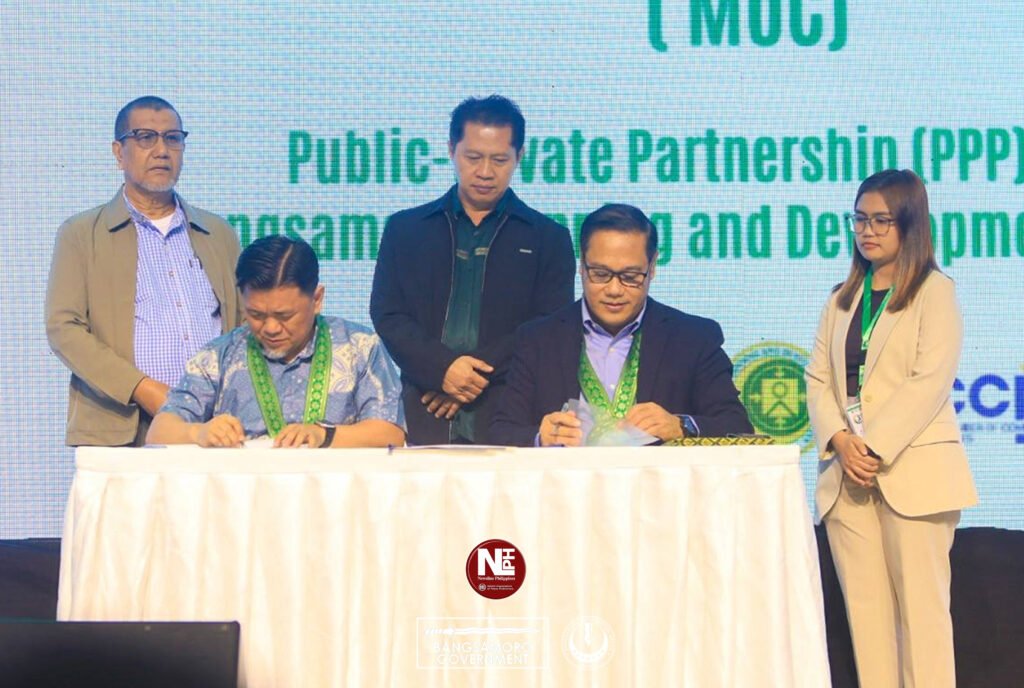
COTABATO CITY (November 27) — The Bangsamoro Government and the Public–Private Partnership (PPP) Center have signed a memorandum of cooperation (MoC) that positions the private sector at the center of BARMM’s long-term development and peacebuilding agenda—an ambitious move that could reshape the region’s political and economic landscape.
The agreement, formalized on Nov. 18 at the KCC Mall of Cotabato during the Bangsamoro Planning and Development Authority’s (BPDA) 3rd Private Sector Organization (PSO) Summit, is framed as a step toward strengthening the humanitarian-development-peace (HDP) Nexus, the core philosophy guiding BARMM’s transition from conflict to stability.
The summit gathered government officials, business groups, academe, civil society, and development partners, reflecting the region’s attempt to widen participation in long-term planning. But it also raised the familiar question: How will BARMM balance private-sector influence with the needs of conflict-affected communities?
Private Sector Gains More Power in Regional Planning
BPDA Director General Mohajirin Ali underscored that genuine stability requires sweeping transformation, not merely the management of conflict.
“Peace is more than the absence of conflict,” he said. “It is the foundation of good governance and inclusive development.”
Ali noted that the summit was designed as a platform for participatory planning, enabling communities and institutions to feed directly into policymaking—a crucial step given BARMM’s history of fragmented governance and marginalization.
The MoC with the PPP Center cements this direction by formally bringing in private-sector actors as strategic partners in crafting policies, shaping development priorities, and aligning BARMM’s plans with national PPP mechanisms.
A Timely Deal—But Also a Test of Accountability
PPP Center Deputy Executive Director Eleazar Ricote said the partnership takes on added significance following the passage of the national PPP Law, which expands local government and regional authority to enter PPP deals.
“Governance is beyond the boundaries of public administration,” Ricote said. “Private sectors and business enterprises contribute directly and indirectly to the conduct of our government.”
But the push for greater PPP participation also invites scrutiny:
- How will BARMM ensure that large-scale PPP projects benefit—not displace—conflict-affected communities?
- What safeguards exist to prevent political capture or favoritism, especially in a region still undergoing transition?
- Will PPP-driven development deepen inequalities, or genuinely open opportunities for micro, small, and community-based enterprises?

